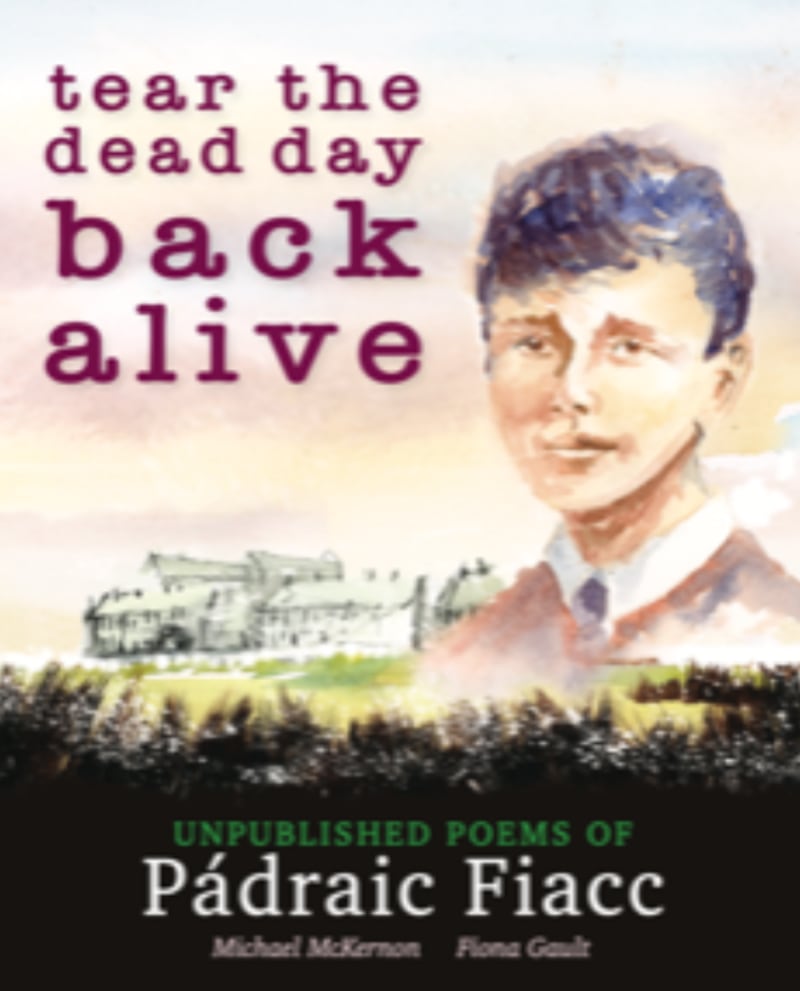POET Pádraic Fiacc became known for his brutal and graphic writing. His stark poems based on his experiences in Northern Ireland were initially vilified but later praised for their intense depiction of urban violence and sectarianism.
However, as part of the Fiacc 100, which marks a century since his birth and celebrates his contribution to Ireland’s literary canon, a new volume of previously unpublished poems has been released which show a completely different side to the poet.
The book, Tear the Dead Day Back Alive, explores Fiacc’s life and work in its entirety.
Born in 1924, Fiacc was christened Pádraic Joseph O’Connor but adopted the pseudonym Fiacc, which means raven, in the 1940s, reflecting his love of nature and especially birds.
- Work of ‘hard edge’ Troubles poet Pádraic Fiacc back in the literary spotlight as celebration of his writing begins in BelfastOpens in new window
- Anne Hailes: Pádraic Fiacc's verse weaves its magic at unique recitalOpens in new window
- Padraic Fiacc: Images and memories from Irish photographer John MinihanOpens in new window
In 1929 Fiacc and his family emigrated to New York to join his father who had moved over in 1928 and established two grocery stores. The following year Fiacc wrote his first known poem, the single stanza Dunluce Castle.

Originally there was no written record of the poem but fortunately he was recorded reciting it around 70 years later.
There are several pieces within the anthology that were at risk of being lost forever. Most notably Rebecca, which concludes the collection, and is dedicated to a woman who was almost never born.
Her mother, in the early weeks of pregnancy, was told during a check up that there was no heartbeat. However, she had an indescribable feeling the doctors were wrong, so she spoke up and told the nurse her concerns. Over the next few weeks, it transpired that she was actually carrying twins, Rebecca and her twin brother.
On hearing this story Fiacc wrote Rebecca as he was fascinated by the idea that the babies communicated with their mother from within the womb.
“I knew I wanted Rebecca to be in the book,” explains Michael McKernon, who co-edited Tear the Dead Back Alive alongside Fiona Gault.
“But Pádraic had written it in pencil and as the years rolled by it had faded – it was almost gone. It was just this faint trace.
“But I’ve been working on Photoshop since it first came out so I went through the process of contrasting it and finally got to point where you could start to see it again - otherwise that poem may have disappeared from his entire canon.”

Poems like Rebecca and Dunluce Castle stand in stark contrast to the work that established Fiacc. For example, his 1977 piece Elegy For A Fenian Get – a brutal recollection of the shooting of nine-year-old Patrick Rooney in 1969, written from the perspective of a sectarian bigot defending the killing.
“Pádraic wasn’t interest in all the razzmatazz that a lot of artists can get swept up in - it was real, genuine life he cared about,” explains Michael.
“He connects with humanity and had empathy for everybody which he communicates through his work.”
“He had this ability to affect and change people’s live – he certainly changed my life,” adds Michael, who became a friend of Fiacc’s in his later years.

“I went up to do a portrait of him in around 2004,” he says.
“And Pádraic was in a bit of a bad place at the time, but we had a chat, and he would talk away and read his poems.
“I kept visiting over a number of weeks to finish the picture and I’d sit there, and he’d go, ‘Michael would you read me a poem?’
“It piqued my interest because we were sitting there on our own, with no distractions, and I was reading these poems, and he was listening, and I used to watch nurses and other people read to him and what stood out to me was that he gave them his complete attention which I always felt that was such a quality to possess.

“So, after I read him a poem, I’d ask him what he was talking about in it, and he’d explain it and tell me different things and within a couple of weeks I totally into his poetry especially because of the insights he’d given me.”
Michael went on to help Fiacc publish his anthology Sea in 2006 and continued to be a close friend and confidante until he passed away in 2019 at the age of 94.
Now, five years after his death Michael is championing his work, not only through the release of Tear the Dead Day Back Alive but also by organising a series of events to re-ignite interest in one of Ireland’s most underrated literary icons.
“Once you see something special, you want to share it with your fellow humans. His work is shamanic - it’s spiritual nourishment,” he explains.
“The aim of this whole thing is to bring his work to a wider audience, not just in Ireland but internationally.”







